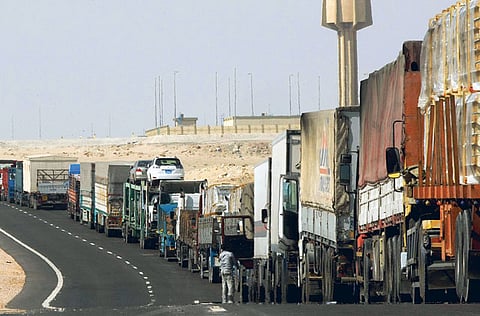Distribution of receipts threatens customs union
It has been dogged by delays and disagreements

Riyadh : A disagreement over how the six-nation Gulf Cooperation Council (GCC) should distribute custom receipts is threatening the completion of the bloc's long-awaited customs union, officials said yesterday.
The GCC's attempts over the past 29 years to emulate the European Union's economic integration model have been dogged by delays in a monetary union plan and disagreement between its two biggest economies, Saudi Arabia and the United Arab Emirates.
The introduction of a customs union in 2003 had been hailed by officials as a major achievement countering critics' claims that the group would be unable to realise economic integration in the world's biggest oil exporting region.
But differences remain and trucks have been held up for days, mainly at the border between Saudi Arabia and the UAE, an issue which has cast fresh doubts about the efficiency of the customs union plan.
GCC officials say the UAE is unhappy with a quota of receipts proposed by the GCC secretariat, but some stress that a bigger issue would be to scrap red tape at border crossings.
GCC Secretary General Abdul Rahman Al Attiyah cautioned at a meeting of finance ministers of the bloc — which also includes Bahrain, Kuwait, Oman and Qatar — against stopping in the midst of "transitional phase of the customs union".
"The goal for everyone is to get to its final status [by the start of 2011] and achieve greater and better economic benefits than what has been achieved up to now.
"Extending the transitional phase may, God forbid, expose the Gulf customs union ... to a retreat and to the loss of the main gains for member states in the economic field as well as weaken the credibility of their decisions for commercial partners," he said at the meeting yesterday.
This task does not promise to be easy, the GCC officials argue, given that most truck drivers in the GCC are migrant workers and the bloc has yet to create a more flexible and uniform identification system for its massive non-native workforce.
Kuwait's Finance Minister Mustafa Al Shamali, whose country holds the GCC's rotating presidency, said the issue of custom receipts distribution was "not a thorny issue impossible to solve" and that it had taken too long to be studied.
Sign up for the Daily Briefing
Get the latest news and updates straight to your inbox


